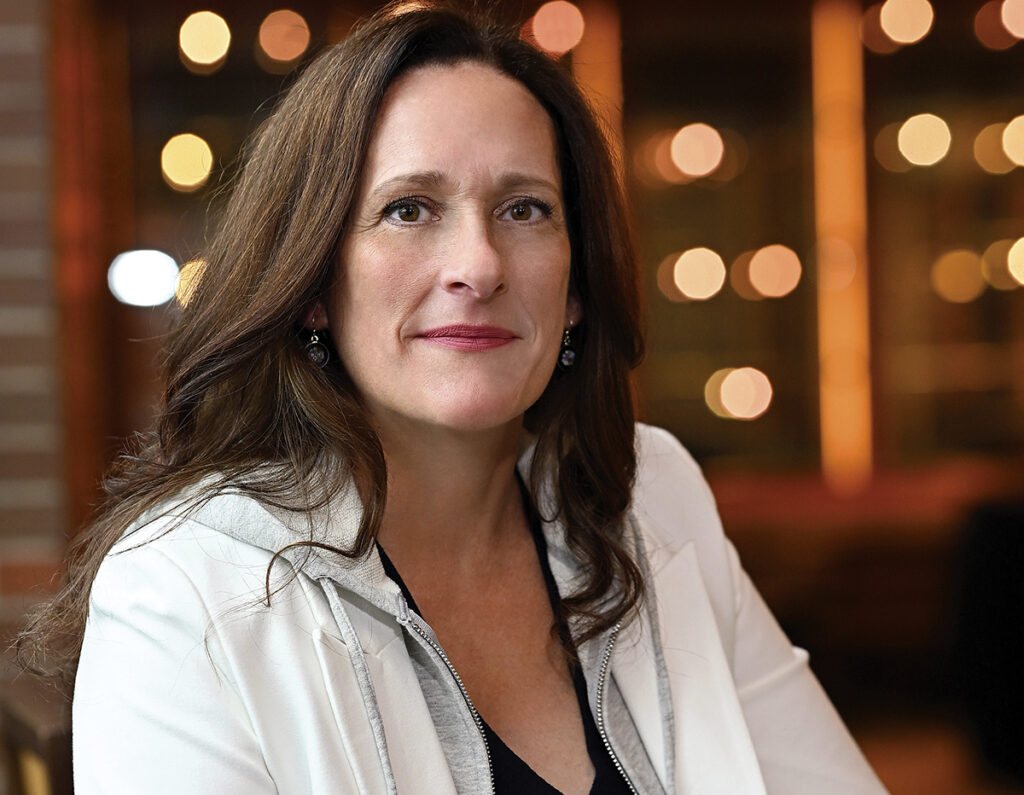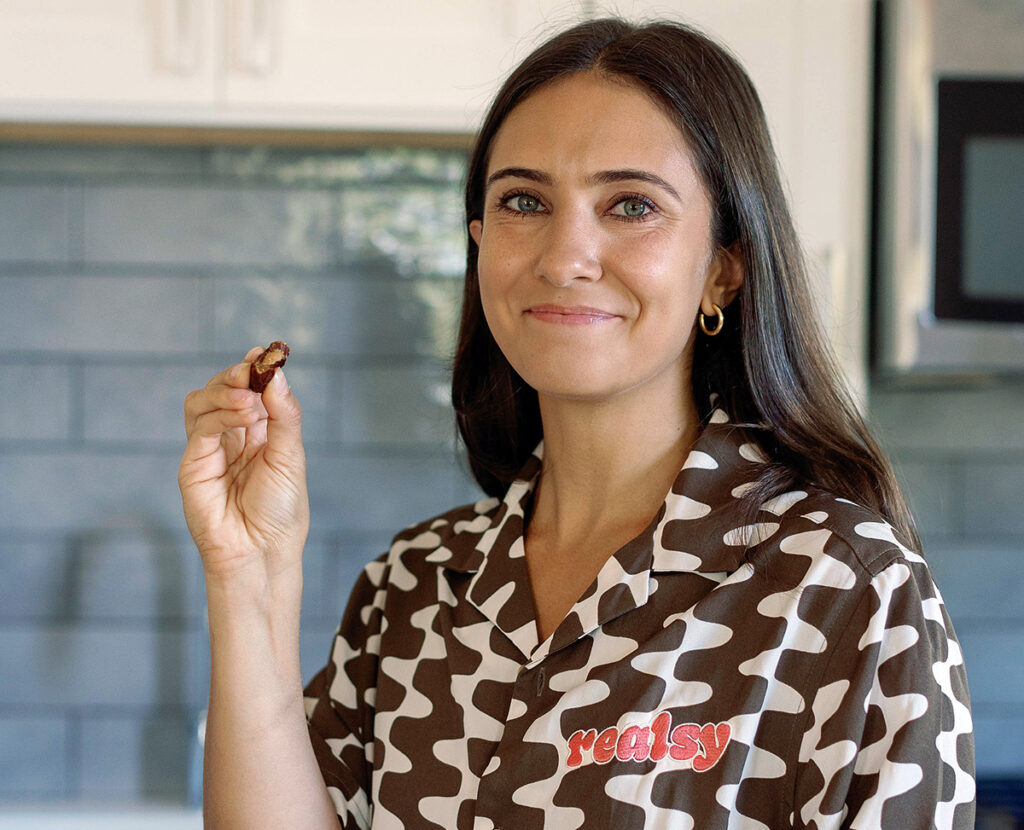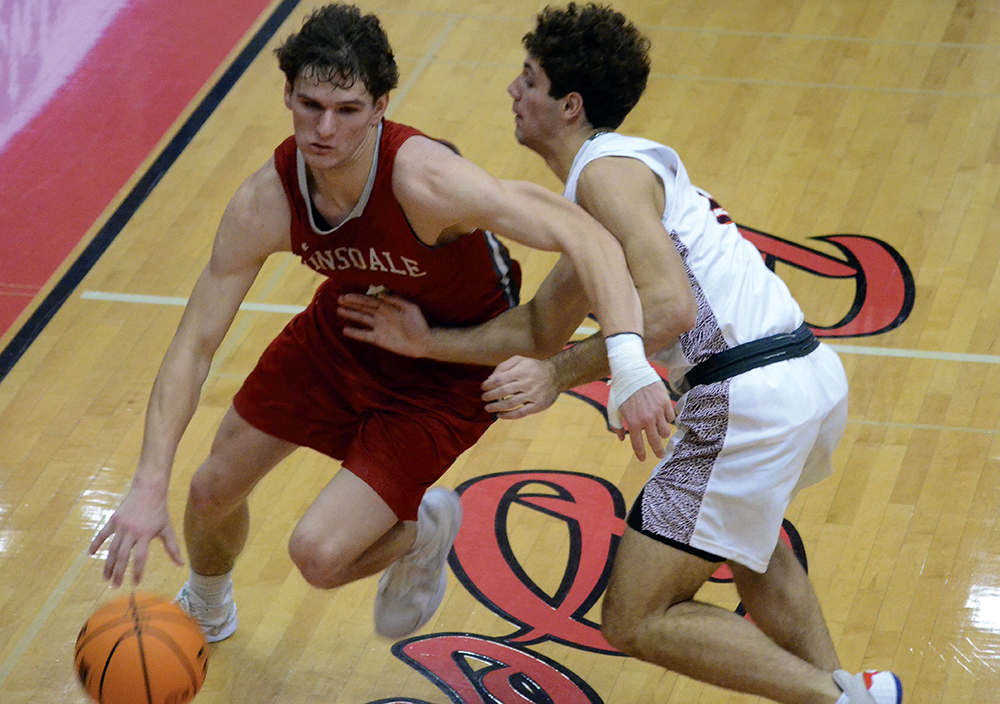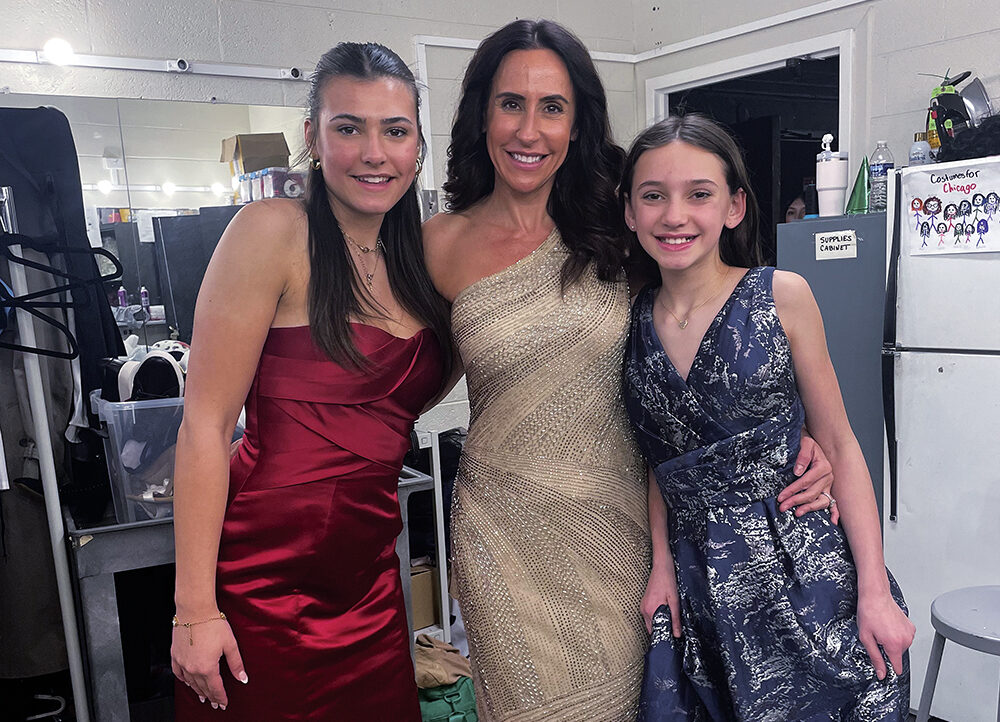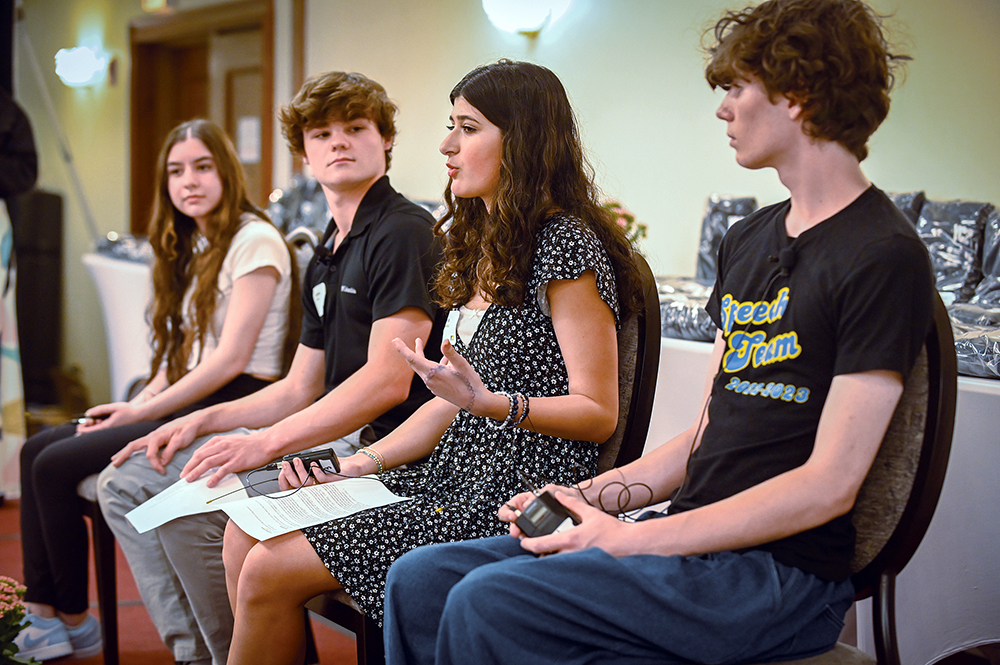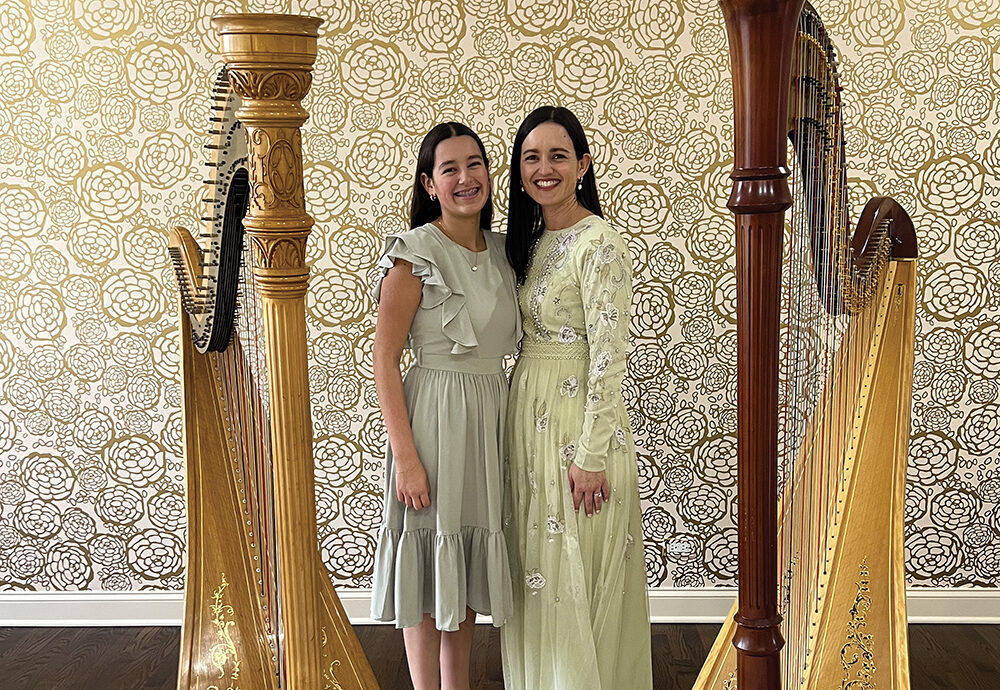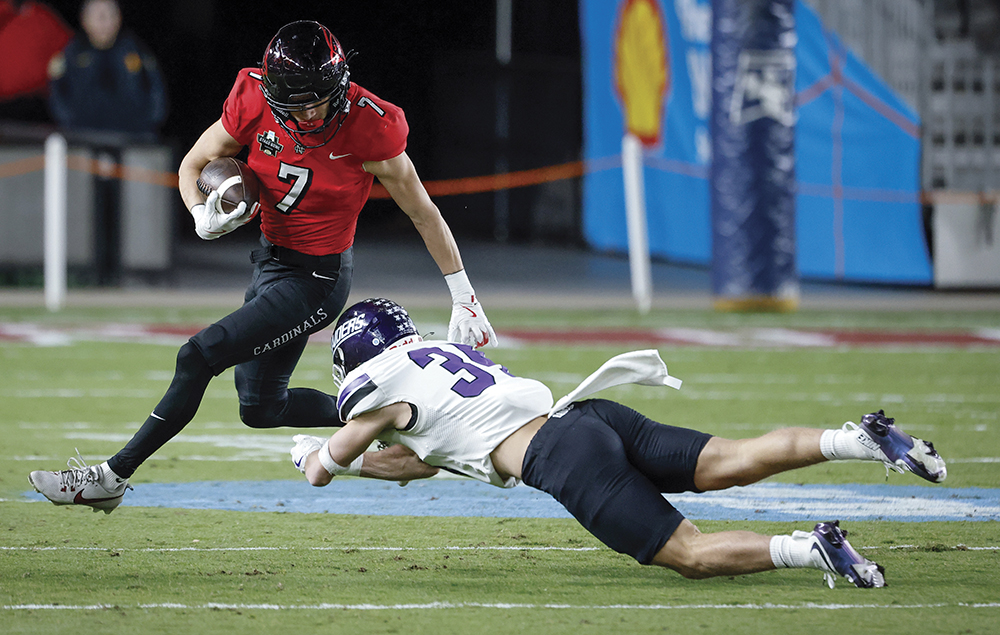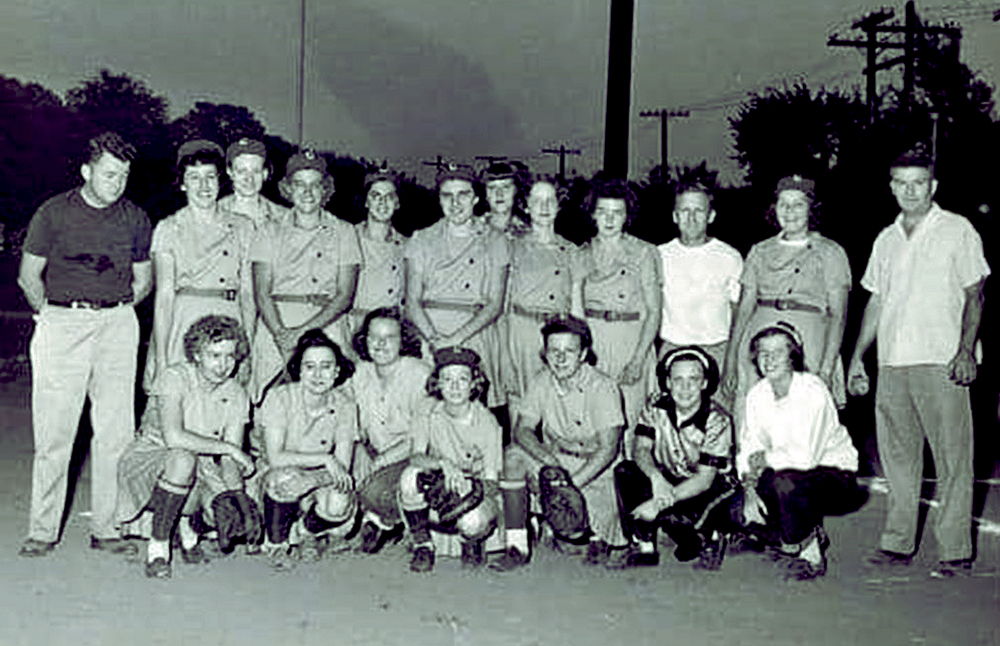Miracle on Main Street
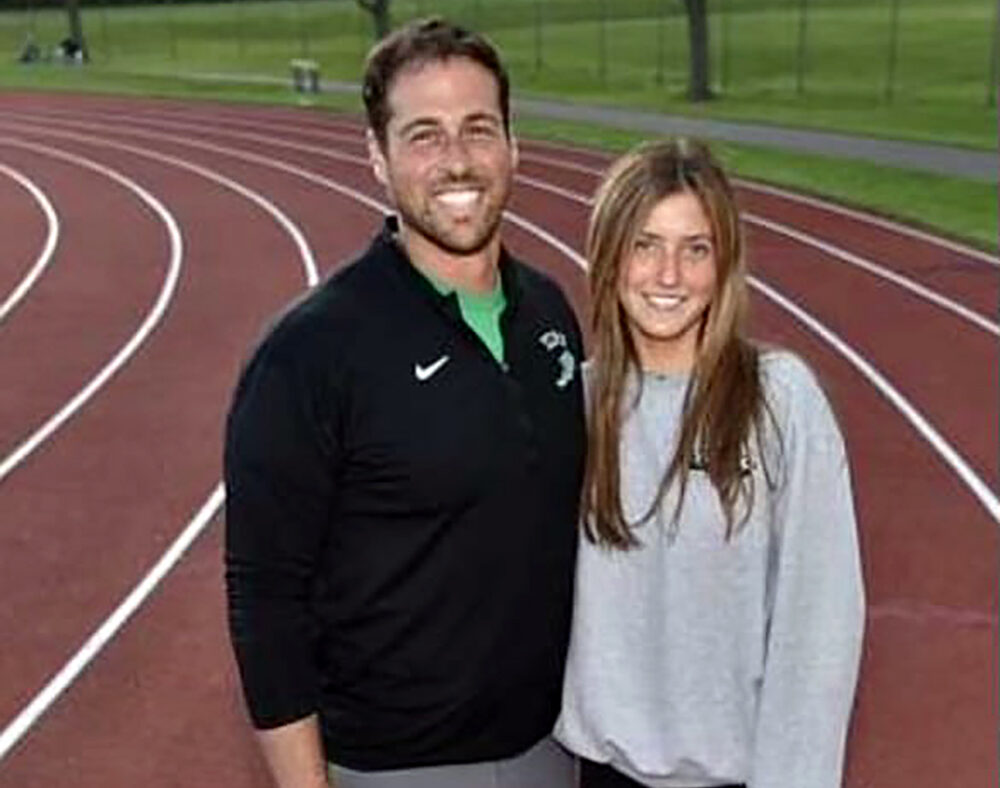
York coach administers CPR to athlete during cardiac arrest
By Anna Hughes
Chloe Peot, a senior track and field athlete at York High School, had just finished her last jump of an invitational at Downers Grove North before she collapsed.
It was a regular April day. She was competing like usual. Nothing seemed out of the ordinary. She was healthy, in great shape, and enjoying the last few weeks of her high school career.
In a split second, all of that changed. Panic erupted from onlookers, including her coach, Niko Karavolos. He knew he needed to jump in to do something to help, but he didn’t know what was going on. At first, he thought she was having a seizure. He soon realized her breathing was erratic, and he couldn’t find a pulse.
She had gone into cardiac arrest. He heard a nearby voice say that someone should start CPR; 90 seconds after Peot hit the ground, Karavolos started chest compressions.
“Having never been in that situation before, I was a little bit confused about what was happening,” Karavolos said. “You can read it in books and understand it and have done the training, but you don’t really know what it looks like until you see it.”
He continued to administer CPR for over four minutes before the paramedics arrived. Chloe’s mom, Deborah Peot, was by their side watching this happen while on the phone with a 911 dispatcher.
“I’m really not a person who overreacts, I would say,” Karavolos said. But there was a heightened level of emotion because I heard her mom on the phone with 911. And I had to deliver her the news that … I can’t find her daughter’s pulse. And hearing her voice in that moment was something I’m never going to forget.”
Deborah Peot said his quick action is why her daughter is healthy today.
“[Chloe’s] cardiologist at the last visit, she did a really extensive stress test, and he was like, ‘Chloe, if I didn’t know what had happened to you, looking at all your tests right now, I wouldn’t have known that you’ve had a cardiac arrest. Everything looks great,’” Deborah said.
Peot had no signs of cardiac issues before this isolated incident. After two weeks in the hospital and a few months of recovery, she feels back to normal. Thanks to the quick delivery of oxygen to her system, she experienced no lasting brain damage or long-term damage.
“I feel fine. I feel like nothing happened to me,” Peot said. “I just try to do everything that I did before.”
Karavolos, who has been at York since 2021, is a former track athlete and has been a coach for 15 years. He also owns a local gym, Ignite Fitness & Athletics. In all of his years in the industry, he’s never experienced an incident like the one with Peot. He wants to help other coaches prepare for the unexpected in order to keep their athletes safe.
“We are one of the few sports that is so spread out that it’s very hard for a medical professional, like an athletic trainer, or very hard for a coach to see everything that’s going on,” Karavolos said. So one of the biggest things was not only recognition for the coaching staff and how to respond to emergencies in general, but also how to educate and implement a plan.”
Karavolos worked with his brother-in-law, Dr. Michael Markos, who specializes in critical care response and pulmonary disease at Loyola University, to develop a seminar for conference coaches. They hope that by providing this information, other teams and schools can have a preparedness plan to respond quickly in an emergency.
Their seminars coincide with Illinois House Bill 5394, which was signed into law in July. This bill requires Illinois schools to implement cardiac response plans and provide school personnel with information and hands-on cardiac emergency response training, including CPR and the use of the AED. Karavolos said this is a step forward in athlete safety. Still, he hopes that his experience with Peot will inspire other coaches to go above and beyond the legal requirements and develop plans for individual sports.
Peot is now a freshman at the University of Wisconsin-Whitewater, where she plans to continue her educational and athletic career. She said her college coaches have been caring and supportive, and they intend to provide her with all the necessary medical monitoring to ensure that she’s able to compete as planned once she’s ready.
The Peot family is eternally grateful for Coach Niko, not only because he saved her life but also because his brave actions allowed her to maintain the same quality of life before that April invitational.
“He’s an amazing human and person and coach and role model,” Deborah Peot said.
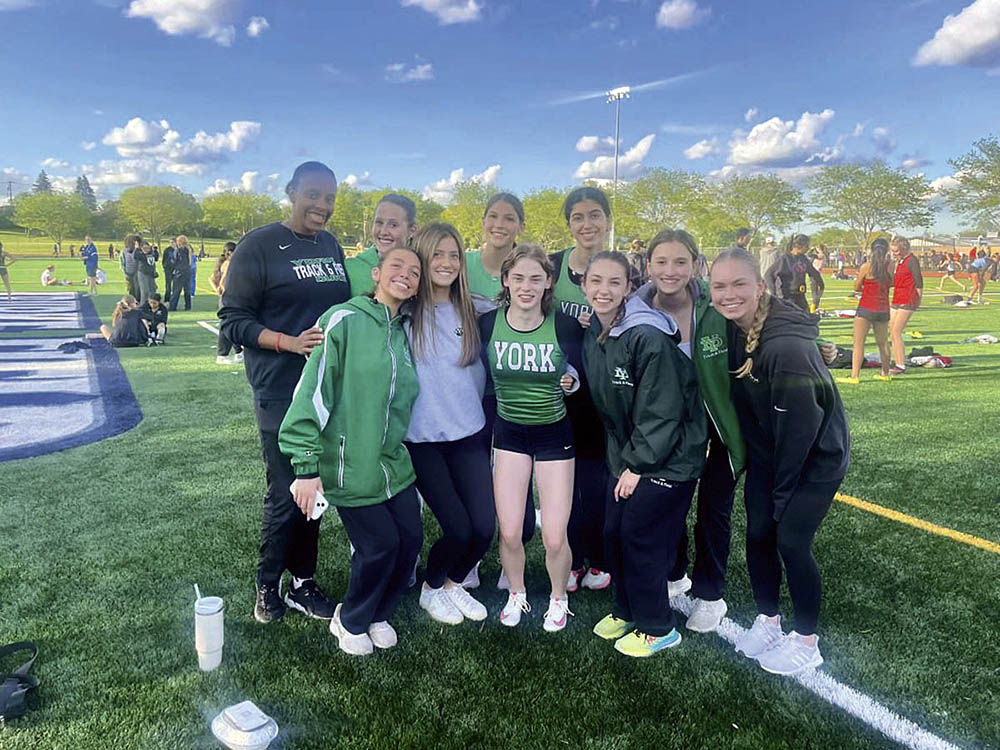
Peot and members of the York track team
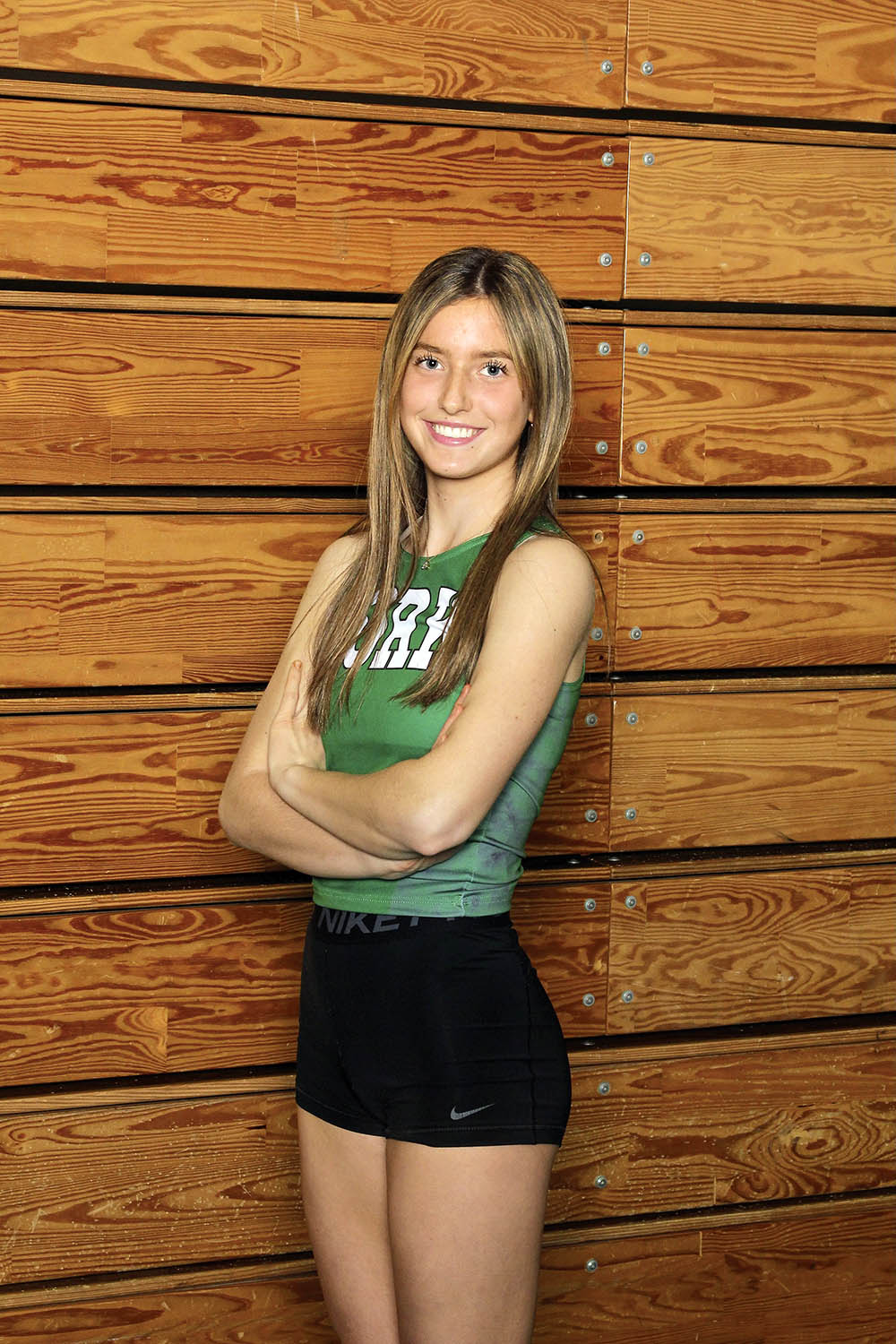
Peot will continue her athletic career at University of Wisconsin-Whitewater this fall.


